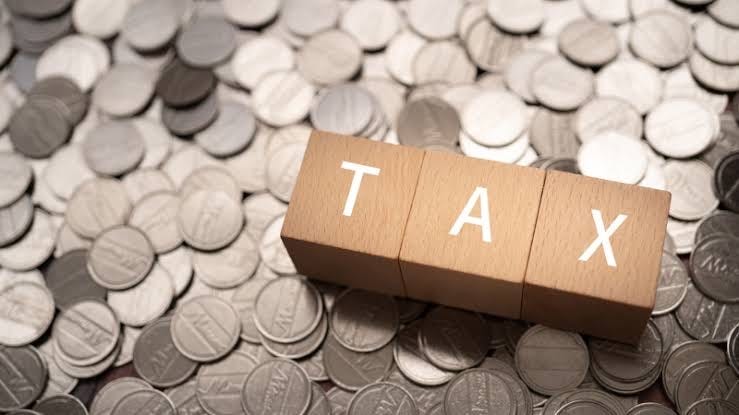Taxing Nigeria’s Super Rich: What it Means for Wealthy Content Creators and Influencers
The Oxfam report, authored by Mtwalo Msoni with contributions from the Tax Justice Network Africa (TJNA) and other institutions, paints a concerning picture of tax evasion among Nigeria’s high-net-worth individuals (HNWIs). According to data from the Federal Inland Revenue Service (FIRS) and the Joint Tax Board (JTB), only 40 out of 115,000 HNWIs in the country are compliant with their tax payments. These HNWIs are defined as individuals earning at least ₦40 million ($127,000) annually. This means that a mere 0.035% of the country’s wealthiest people are paying their fair share of taxes.
The scale of tax evasion among this group has a detrimental impact on Nigeria’s economy. With over 99% of the super-rich avoiding taxes, the government is losing out on significant revenue that could be used to address pressing social needs, including healthcare and education.
The Potential Revenue from Wealth Taxes
One of the key findings of the Oxfam report is the vast revenue potential from taxing Nigeria’s wealthiest citizens. The report estimates that implementing an annual wealth tax could raise over ₦4.59 trillion ($6 billion) annually. This would be enough to more than double Nigeria’s health budget or reduce household health expenditures by 40%.
The proposed wealth tax would target individuals with a net worth of $5 million or more. There are approximately 4,690 such individuals in Nigeria, with a combined wealth of $107.2 billion. Additionally, 245 individuals have a net worth of $50 million or more, totaling $56.5 billion. By introducing a tiered wealth tax system—2% on wealth over $5 million, 5% on wealth over $50 million, and 10% on wealth over $1 billion—the Nigerian government could tap into this enormous pool of wealth.
Beyond wealth taxes, capital gains taxes (CGT) in Nigeria are also underperforming, contributing only 0.24% of the country’s total tax revenue. Nigeria’s CGT rate of 10% is far lower than that of peer countries like South Africa and Ghana, where the rate ranges from 15% to 35%. Numerous exemptions and loopholes allow the wealthy to avoid paying taxes on their capital gains, further exacerbating the issue.
What About Content Creators and Influencers?
As Nigeria’s influencer economy grows, content creators and influencers, particularly those earning significant income in foreign currencies, are being drawn into the tax net. While influencers might not be in the billionaire league, many are making substantial earnings through brand partnerships, advertising deals, and other online ventures. The government is now looking to ensure that these individuals also contribute their fair share of taxes.
The Nigerian government is reportedly considering imposing a 25% tax rate on individuals earning ₦100 million or more monthly. This would include a rising number of digital content creators who earn lucrative deals in dollars, either through YouTube, Instagram, or other platforms. As more influencers enter the high-net-worth category, the government’s focus on the digital economy is growing.
Content creators and influencers in Nigeria who earn significant income in dollars are already in the crosshairs of tax authorities. These digital entrepreneurs, many of whom are seen as the new wave of wealth creators in the country, could soon face stricter tax scrutiny. Platforms like YouTube, Instagram, and TikTok have become lucrative for Nigerian influencers, with many earning large sums through brand deals, sponsored content, and affiliate marketing.
This development aligns with the global trend where governments are increasingly looking to tax digital economy participants, including content creators and influencers who earn substantial incomes. In countries like the U.S. and U.K., tax compliance among digital entrepreneurs is strictly enforced. Nigeria is beginning to follow suit, especially as more influencers report their earnings and brand deals in foreign currencies.
Balancing the Tax Burden
According to Taiwo Oyedele, the Chairman of the Presidential Committee on Fiscal Policy and Tax Reforms, imposing a higher tax rate on the rich is necessary to balance the tax burden. While the lower-income earners are already stretched thin by multiple taxes, high-income individuals are expected to contribute more significantly to the country’s revenue. For content creators and influencers who have enjoyed rapid financial success, this move could serve as a reminder to be mindful of their tax obligations.
The discussion surrounding the taxation of influencers and content creators also brings up the issue of tax literacy. Many digital entrepreneurs in Nigeria might not be fully aware of the tax implications of their earnings, particularly those that come from foreign sources. The Federal Inland Revenue Service (FIRS) and other tax bodies will need to ramp up efforts to educate and inform these groups about their tax responsibilities.
Conclusion
Nigeria’s super-rich, including a rising number of high-earning content creators and influencers, are coming under increasing pressure to meet their tax obligations. The potential revenue from properly taxing this group could go a long way in bridging the country’s revenue gap and funding critical sectors like healthcare and education. As the government continues its tax reforms, it remains to be seen how Nigeria’s wealthiest individuals—both traditional elites and the new generation of digital entrepreneurs—will respond.







